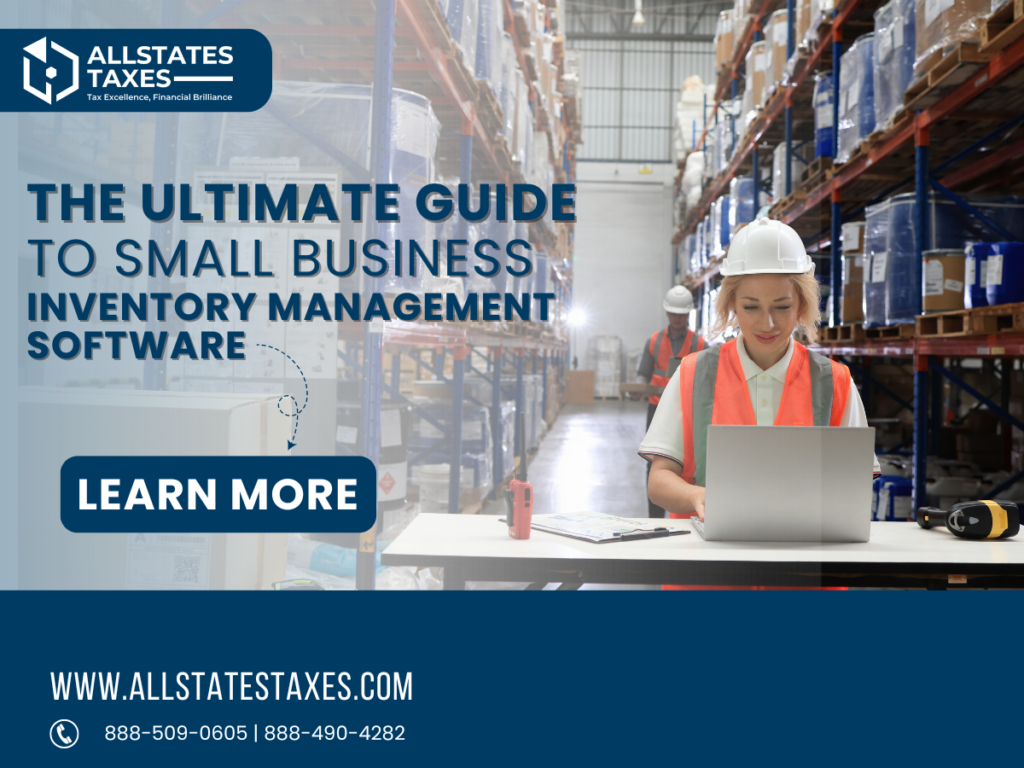Efficient inventory management is the backbone of any successful small business. Whether you are a retailer, a wholesaler, or a service provider, keeping track of your stock levels, orders, and sales is crucial for ensuring profitability and customer satisfaction. This is where small business inventory management software comes into play. In this guide, we will explore everything you need to know about inventory management software, including the benefits, key features, and how to choose the right one for your business.
Introduction
Running a small business comes with its own set of challenges. One of the most critical aspects of ensuring smooth operations is effective inventory management. However, traditional methods like spreadsheets or manual tracking often fall short, leading to errors, stockouts, or overstocking, all of which can hurt your bottom line. Enter small business inventory management software—a digital solution designed to automate and streamline your inventory processes.
With the right software, you can gain better control over your stock, reduce operational costs, and improve overall efficiency. This guide will walk you through the essentials of inventory management software, from its benefits to selecting the best options available in the market.
What is Small Business Inventory Management Software?
Small business inventory management software is a digital tool that helps businesses manage their inventory levels, orders, sales, and deliveries. It provides real-time data on stock levels, tracks inventory across multiple locations, and often integrates with other business systems such as accounting software or e-commerce platforms. This software is particularly beneficial for small businesses that need to maintain accurate inventory records without investing in expensive, large-scale enterprise systems.
Why Do Small Businesses Need Inventory Management Software?
For small businesses, managing inventory efficiently is crucial to avoid common pitfalls like overstocking, stockouts, and mismanaged orders. Small business inventory management software offers the following advantages:
- Automation: Automates repetitive tasks like order processing and inventory tracking, freeing up time for more strategic activities.
- Accuracy: Reduces the chances of human error, ensuring accurate inventory counts and better decision-making.
- Cost Savings: Helps avoid the costs associated with overstocking or stockouts by providing real-time data on inventory levels.
- Scalability: As your business grows, the software can scale with you, offering advanced features as needed.
Key Features of Small Business Inventory Management Software
When choosing the right small business inventory management software, it’s essential to consider the features that will best meet your business needs. Here are some key features to look out for:
Real-Time Inventory Tracking
Real-time tracking allows you to monitor stock levels as items are sold, received, or moved between locations. This feature helps prevent stockouts and overstocking by providing up-to-date information on your inventory.
Order Management
Order management features enable you to track and manage purchase orders, sales orders, and shipping. This ensures that orders are fulfilled on time and that stock levels are adjusted accordingly.
Barcode Scanning
Barcode scanning integration simplifies the process of adding or removing items from your inventory. This feature reduces manual data entry and minimizes the risk of errors.
Reporting and Analytics
Comprehensive reporting tools allow you to analyze inventory trends, sales performance, and order history. These insights help you make informed decisions about purchasing, pricing, and stock levels.
Multi-Location Management
If your business operates across multiple locations, multi-location management features are essential. These tools allow you to track inventory across different sites and ensure that stock levels are optimized at each location.
Integration with Other Systems
The ability to integrate with accounting software, e-commerce platforms, or CRM systems is crucial for streamlining operations. This ensures that your inventory data is synchronized across all business functions.
Benefits of Using Small Business Inventory Management Software
Implementing small business inventory management software offers numerous benefits that can help your business thrive. Here’s how this software can transform your operations:
Improved Efficiency
By automating inventory tasks, the software allows your team to focus on other critical aspects of the business, such as customer service or marketing. Automation also speeds up processes, reducing the time it takes to fulfill orders and manage stock.
Enhanced Accuracy
Manual inventory management is prone to errors, which can lead to costly mistakes. Inventory management software provides accurate, real-time data, ensuring that your inventory records are always up-to-date and reliable.
Cost Reduction
With better inventory management, you can avoid the costs associated with overstocking, such as storage fees, and the lost sales from stockouts. The software helps you maintain optimal inventory levels, reducing unnecessary expenses.
Better Decision-Making
Access to detailed reports and analytics allows you to make informed decisions about purchasing, pricing, and inventory management. You can identify trends, forecast demand, and adjust your strategy accordingly.
Scalability
As your business grows, your inventory management needs will evolve. Small business inventory management software is designed to scale with your business, offering advanced features and capabilities as needed.
Types of Small Business Inventory Management Software
There are various types of small business inventory management software available, each with its own set of features and capabilities. Understanding the different types can help you choose the best solution for your business.
Cloud-Based Inventory Management Software
Cloud-based solutions are hosted on remote servers and accessed via the internet. This type of software is ideal for small businesses because it offers flexibility, scalability, and cost savings. You can access your inventory data from anywhere, and updates are handled automatically by the software provider.
On-Premises Inventory Management Software
On-premises software is installed locally on your business’s servers. While this option offers more control over your data, it requires a significant upfront investment in hardware and IT resources. On-premises solutions may be better suited for businesses with specific security or compliance requirements.
Free and Open Source Inventory Management Software
For small businesses on a tight budget, free or open-source inventory management software can be a viable option. While these solutions may lack some of the advanced features of paid software, they can still provide essential inventory management capabilities. It’s important to consider the level of support and customization options available with these solutions.
Industry-Specific Inventory Management Software
Some inventory management software is designed for specific industries, such as retail, manufacturing, or healthcare. For example, medical device inventory management software offers specialized features like compliance tracking and lot number management. If your business operates in a niche industry, consider choosing software tailored to your specific needs.
Best Inventory Management Software for Small Businesses
Choosing the right small business inventory management software can be challenging, given the many options available. Here’s a look at some of the best software solutions on the market today:
TradeGecko
TradeGecko is a cloud-based inventory management software designed for small to medium-sized businesses. It offers features like real-time inventory tracking, multi-channel sales integration, and robust reporting tools. TradeGecko is particularly popular among e-commerce businesses for its seamless integration with platforms like Shopify and Amazon.
Zoho Inventory
Zoho Inventory is a comprehensive inventory management solution that integrates with the entire Zoho suite of business tools. It offers features like order management, barcode scanning, and multi-location inventory tracking. Zoho Inventory is a great choice for businesses already using other Zoho products.
Cin7
Cin7 is an all-in-one inventory management platform that offers advanced features like automation, real-time stock tracking, and multi-channel sales integration. It is suitable for businesses with complex inventory needs, such as those operating in multiple locations or selling through various channels.
Odoo
Odoo is an open-source business management software that includes a powerful inventory management module. It offers features like real-time inventory tracking, warehouse management, and integration with other Odoo apps. Odoo is highly customizable, making it a great option for businesses with unique requirements.
Square for Retail
Square for Retail is a cloud-based point-of-sale (POS) system that includes inventory management features. It offers tools for tracking stock levels, managing purchase orders, and generating sales reports. Square for Retail is ideal for small businesses looking for an easy-to-use, affordable solution.
How to Choose the Right Small Business Inventory Management Software
Selecting the right small business inventory management software involves considering several factors, including your business size, industry, and budget. Here are some tips to help you make the best choice:
Assess Your Business Needs
Before selecting software, take the time to assess your business’s inventory management needs. Consider factors like the number of products you manage, the complexity of your supply chain, and your sales channels. Understanding your needs will help you choose software with the right features and capabilities.
Consider Scalability
Choose software that can grow with your business. As your inventory needs become more complex, you’ll want software that can handle additional locations, sales channels, and product lines without requiring a costly upgrade.
Evaluate Ease of Use
The software you choose should be user-friendly and easy to implement. Look for solutions with intuitive interfaces, clear documentation, and responsive customer support. Ease of use is especially important if you have a small team or limited technical expertise.
Check Integration Capabilities
Ensure that the software you choose can integrate with your existing business systems, such as accounting software, e-commerce platforms, and CRM tools. Integration capabilities will streamline your operations and reduce the risk of data discrepancies.
Compare Pricing
Finally, consider the cost of the software, including any setup fees, subscription costs, and additional charges for features or support. While it’s important to stay within your budget, don’t sacrifice essential features for the sake of cost. Look for software that offers the best value for your money.
FAQs
What is the best inventory management software for small businesses?
The best inventory management software for small businesses depends on your specific needs, but popular options include TradeGecko, Zoho Inventory, and Cin7.
Is there free inventory management software available for small businesses?
Yes, there are free and open-source options available, such as Odoo, which offers a robust inventory management module. However, these may lack some advanced features found in paid solutions.
Can inventory management software integrate with my e-commerce platform?
Yes, many inventory management software solutions offer integration with popular e-commerce platforms like Shopify, WooCommerce, and Amazon.
How does inventory management software help reduce costs?
Inventory management software helps reduce costs by preventing overstocking, minimizing stockouts, and optimizing inventory levels, leading to lower storage costs and improved cash flow.
What features should I look for in inventory management software?
Key features to look for include real-time inventory tracking, order management, barcode scanning, reporting and analytics, and multi-location management.
Is cloud-based inventory management software better than on-premises software?
Cloud-based software is often preferred by small businesses due to its flexibility, scalability, and lower upfront costs. However, on-premises software may be better suited for businesses with specific security or compliance needs.
Conclusion
Investing in the right small business inventory management software can make a significant difference in your business’s efficiency and profitability. By automating inventory tasks, improving accuracy, and providing valuable insights, inventory management software allows you to focus on growing your business rather than managing stock. Whether you’re a retailer, wholesaler, or service provider, there is a solution out there that can meet your unique needs. Take the time to assess your requirements, explore your options, and choose the software that will help you achieve your business goals.



